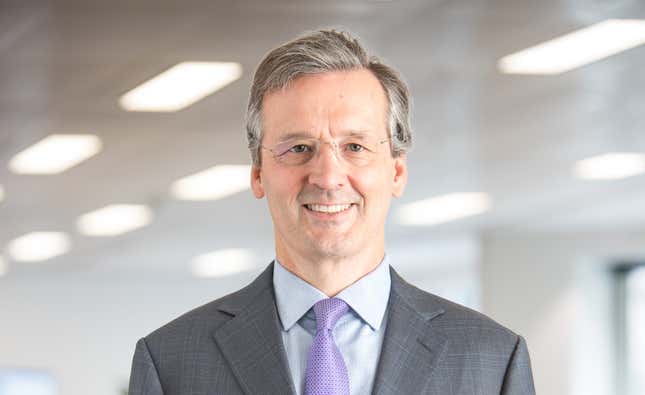Major international banks and private equity (PE) houses have been reducing their exposure to Africa in the past few years, but, thankfully for the continent’s startups, not everyone is retreating. While commercial lenders appear nervous and PE fundraising in Africa fell to $2.7 billion in 2018 from $4.5 billion in 2015, some development finance institutions have stepped in to fill some of the gap, perhaps none more so that the UK’s CDC.
The enthusiasm of the UK’s development finance agency was evident in January, when it handed $19.2 million to Verod Capital and $20 million to Adiwale Partners to invest in local SMEs in West Africa.
CDC has quietly developed into one of the biggest investors in Africa and these deals are typical of its approach, providing capital for smaller funds to seek out opportunities on the ground. Also in January, it handed €25 million to Mediterrania Capital Partners III in North Africa and $15m to Lagos and Nairobi-based TLcom’s TIDE Africa Fund.
Such commitments sit within a massive portfolio. CDC has stakes in at least 600 different companies across 34 countries, from Algeria to Zimbabwe. Last year it committed $1.4 billion around Africa and it has earmarked $2 billion more for the next two years. But its model is different from traditional PE. For one thing, it is under no pressure to exit deals quickly.
“The sort of thing that drives most private equity funds to be very short term doesn’t apply to us,” says CDC chief executive Nick O’Donohoe. “We don’t have a requirement to pay dividends or raise a new fund. We really are the archetypal patient investor.”
To illustrate that, he points to Uganda’s DFCU bank. CDC first invested in the business in 1964 and only sold its stake in December last year.

CDC is a wholly owned agency of the UK Department for International Development (DfID), the much higher-profile government arm, particularly in global development. DfID sets out CDC’s investment policy and appoints its chairman and some directors, but CDC is responsible for its own day-to-day operations including its investment decisions. The finance agency was founded in 1948 as the Colonial Development Corporation and has evolved into one of Africa’s true long-term investors. By the end of 2018 52% of CDC’s investment portfolio was based in Africa.
Being able to take a long-term approach is useful given the limitations of local PE markets. “Africa doesn’t lend itself to the shorter timeframes that most traditional PE firms have,” says O’Donohoe. “That’s one of the reasons the PE industry has struggled. It’s difficult to find attractive investments to begin and very difficult to exit them because you don’t have developed local capital markets.”
In another sense the Ugandan DFCU bank deal is not so typical anymore though. Rather than making direct investments, CDC often commits money via other routes. It tends to provide funds to support small to medium-sized businesses through trade finance deals with local banks or through specialist funds.
CDC’s influence is increasingly felt in an African finance space that’s been underserved by international investors who have typically focused on fossil fuel energy, mining and large infrastructure projects. However more local and international venture capital and private equity investors are jumping on board the nascent but fast-expanding innovation and tech-led sectors across the continent. Some of these firms are being backed by CDC.
The deals announced in January are a good example. TLcom, for instance, has backed early-stage businesses like logistics firm Kobo360, software developer Andela and online marketplace Twiga Foods. It invests $500,000 to $10 million per venture—a critical segment of the funding scene.
UK trade commissioner for Africa Emma Wade-Smith says “If you want £5 million it’s hard, but there are options out there. If you want less than £5 million it’s really hard, because what options are there?”
By investing in other investors, CDC helps to bridge that funding gap. Another part of the strategy is encouraging banks to lend to local businesses. At the recent UK Africa Investment Summit in London, CDC announced a $100 million trade finance loan for South Africa’s Absa Bank to support SMEs and entrepreneurs in seven countries. That came on top of a $75 million trade finance deal with Absa in October.
“Countries need a robust, well-capitalized financial system and so we provide a lot of funding through banks, through debt, loan facilities, trade finance, supply chain finance,” says O’Donohoe.
Not everyone approves of CDC’s approach though. Last year a review by the UK’s Independent Commission for Aid Impact concluded CDC’s performance was “unsatisfactory… in most areas.” It said CDC did not do enough to maximize the impact of its investments, struggled to find viable direct investment deals and needed to take “a more active role in the management of its investments.”
CDC accepted the findings and said it was addressing the issues raised. It was more dismissive of a report from Global Justice Now (GJN) in February this year, which claimed CDC was prioritizing profit over fighting poverty and should scrap its “fund of funds” strategy.
“It seems bizarre and risky to hand over the accountability to a third party to then be making the decision on how that money is invested,” says Daniel Willis, GJN’s policy and campaigns manager. “Communities affected by these investments find it very difficult to know where to target their complaints because there are so many actors involved.”
In response to the report, CDC said GJN had a “philosophical opposition” to the use of the private sector in alleviating poverty and “we disagree with that view.”
Others accept the role of the private sector but still question CDC’s approach. At a hearing of the House of Lords’ International Relations and Defence Committee on Mar. 11, Lord Mendelsohn, said there were “tremendous concerns” about private equity in Africa, while also acknowledging “there is no example where a country can escape poverty without a vibrant private sector.”
In response, CDC’s general counsel Colin Buckley said “for purposes of efficiency” the minimum size of direct investment CDC can make from London is about $20 million, so PE funds are a critical tool. “What an investment fund is for us is a local team … who believe they have insights into their country, their markets,” he said. “Without investment funds and without banks we would not be able to reach these SMEs, these micro enterprises that largely make up the economies we talk about.”
There are other controversies. O’Donohoe says it avoids investments in extractive industries, although the UK government recently told parliament CDC has 38 “investments relating to fossil fuels”.
There is also an ongoing bias towards countries with historical links to the UK – unsurprising given CDC’s origins. But O’Donohoe says it has a broader outlook today.
“We don’t exclude any country but if you don’t have basic rule of law, we’re not going to be in there,” he says. “There is an emerging group of countries that are becoming much more investible. They have introduced stability into their macroeconomic policies but also they are trying much harder to make it easier for companies to do business. Egypt, Ethiopia, Rwanda, Ghana: these countries are really focused on enabling the private sector.”
One useful test of CDC’s investment strategy will be whether the relationship between Africa and international businesses changes over time. “We want Africa to be seen as a growth opportunity, rather than just a place where you go to buy natural resources,” says O’Donohoe. Where there is growth, there is almost always private equity looking for opportunities.
Sign up to the Quartz Africa Weekly Brief here for news and analysis on African business, tech and innovation in your inbox
